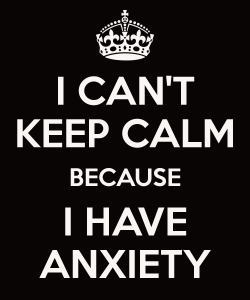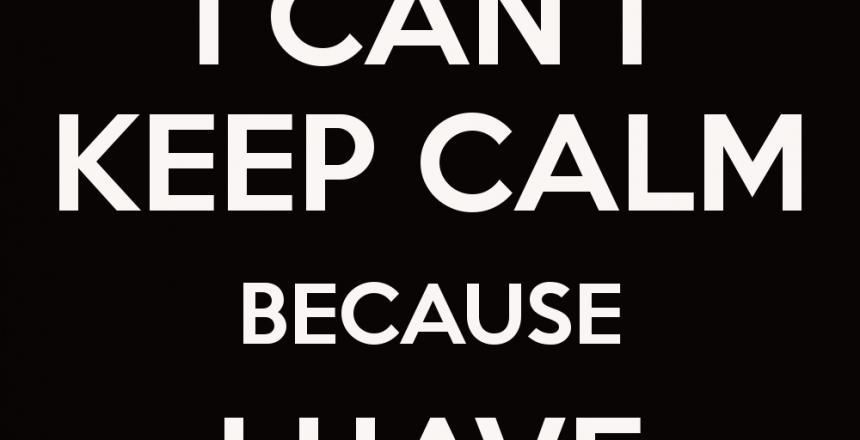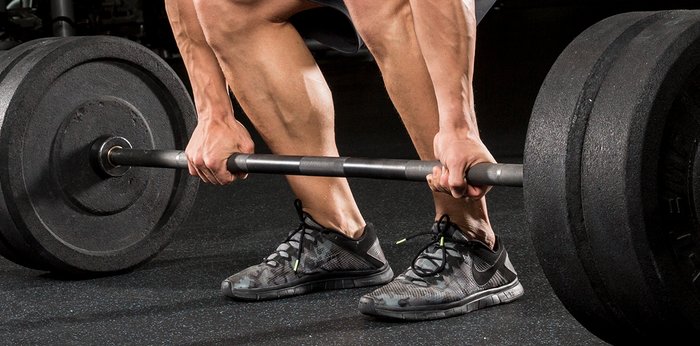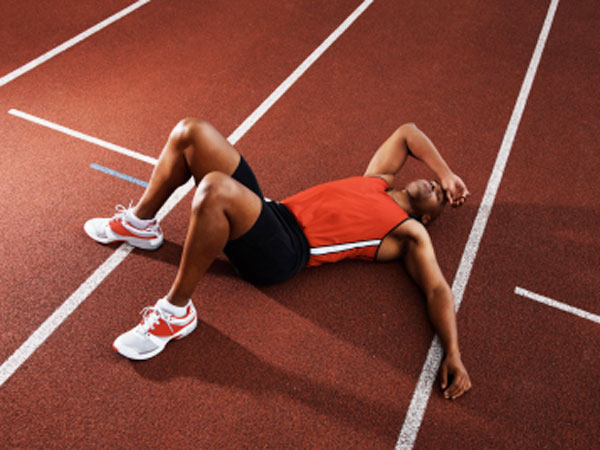
Good health is not just about physical health, but about mental health. Usually, good mental health accompanies good physical health; the Romans used to have an expression for this: mens sana in corpore sano, or a sound mind in a healthy body. Nevertheless, sometimes the brain and the mind can go awry even in a healthy body, one of the ways being when anxiety manifests itself. If you have anxiety to the point that it bothers you, there are several things that one can do, like the following.
1. Watch your caffeine intake.
This seems elementary, yet even most doctors won’t ask about caffeine intake when a patient comes to him with a complaint of anxiety. Yet it appears that people with an anxiety disorder have increased sensitivity to caffeine. If too much caffeine is ingested, caffeine intoxication may result. There are case reports of increase suicidal tendencies with excessive caffeine consumption.
Excessive caffeine consumption is also linked with depression, anxiety, and psychosis. (The subject in this paper was drinking a hell of a lot of coffee.)
This would be the first thing I’d look at if I were suffering from anxiety. Those Starbucks coffees can have a huge amount of caffeine, and if you add energy drinks or even soda to that, you could be consuming way more caffeine than you think. Cut back on it. Consider drinking tea instead of coffee; that way you can still get a mild caffeine boost without overdoing it.
2. Exercise.
Anxiety is closely associated with depression, and exercise has been found to be a good way of dealing with both. In a cross-sectional study, those who exercised were found to be less prone to anxiety and depression. Exercise can also be used to treat anxiety, since exercise is a profound anxiolytic.
So it appears that exercise over a longer time period results in less anxiety, and that an acute bout of exercise relieves anxiety. Furthermore, being sedentary is associated with more anxiety and depression.
3. Magnesium.
Low magnesium intake is associated with anxiety and depression. In animals, magnesium deficiency reliably induces anxiety-like behavior. Magnesium also appears to have a role in the etiology of major depression.
If you suffer from anxiety, a trial of magnesium citrate wouldn’t be a bad idea at around 400 mg magnesium a day. (Anyone with impaired kidney function should see a doctor before supplementing with magnesium.)
4. N-acetylcysteine
I’ve covered this cheap, safe, and over-the-counter supplement in a number of blog posts. Suffice it here to say that is has efficacy in depression, an appears that it may be useful for anxiety as well.










13 Comments
Nice succinct post. I’ve personally suffered from anxiety, panic attacks etc. Cutting down or eliminating my caffeine intake has done a world of difference. I’m also a big fan of supplementing with L-theanine if I choose to have some caffeine in the morning… I also found great results with your magnesium suggestion and of course exercise. no panic attacks in 3 years and going strong. I’ll have to check out the NAC.
Another thing which decreases anxiety, at least in my case, is age.
When I was 20 I used to be very nervous but little by little my anxiety declined each year until now at 40 I’m calm and confident almost all of the time.
I’m sure that hormonal changes play a part but I suspect that ongoing exposure to anxiety causing situations does also. The more that you are exposed to something that causes anxiety (e.g. public speaking or interacting with women) the more skilled that you become at dealing with that until you reach the point where it no longer makes you anxious to nearly the same extent or even at all.
High impact running improves learning.
https://www.researchgate.net/publication/6615472_High_impact_running_improves_learning
We found that vocabulary learning was 20 percent faster after intense physical exercise as compared to the other two conditions. This condition also elicited the strongest increases in BDNF and catecholamine levels. More sustained BDNF levels during learning after intense exercise were related to better short-term learning success, whereas absolute dopamine and epinephrine levels were related to better intermediate (dopamine) and long-term (epinephrine) retentions of the novel vocabulary. Thus, BDNF and two of the catecholamines seem to be mediators by which physical exercise improves learning.
Hello and thanks for the post !
You recommend a trial of magnesium citrate with 400 mg magnesium a day.
Is that amount the ordinary daily intake of magnesium or a “boosted” dose to deal with a current anxiety state ? How much would the daily intake be once the anxiety subsides?
Thank you.
If one had no other sources of magnesium in the diet, 400 is around the RDA. With other sources, it is a “boosted” dose as you put it, but not terribly high I believe. Also, it builds up in the system. One might have to take it for some time, months perhaps, until the body has enough magnesium. After that, 200 mg a day would likely be enough to keep one mag replete.
Thank you for the answer.
Gelatin may be another resource: https://www.judytsafrirmd.com/gelatin-for-anxiety-sleep-and-appetite-suppression/
Hey Dennis,
This is a good list. I’ve suffered from anxiety/panic attacks on-and-off since my mid 20s. Coincidentally, once I began consuming coffee daily.
It’s only taken me 10 years to figure out that I’m extremely sensitive to caffeine. Besides panic attacks, as of late I’ve noticed that I become fatigued after have a big cup of coffee. Maybe the caffeine taxes my adrenals too much? I’ve gone to multiple specialists concerning my fatigue, and all scratch their head and don’t know what to make of it.
The only other suggestion I would make to this post is to supplement inositol. 5g daily. This was the first supplement that I noticed would cancel out any panic attacks.
There was a study performed on inositol in Israel. The researchers used 18g per diem, and it was found to perform better than pharmaceuticals. Here’s the link to the study: https://www.ncbi.nlm.nih.gov/pubmed/11386498
I would start off with 5g per day and see how you feel. It takes a few days of supplementation to experience a drop in anxiety.
Based on my personal experience, supplementing with molybdenum helps the body process caffeine (via xanthine oxidase).
Also, supplementing with the amino acid glycine helps with anxiety, which is inline with the gelatin comment above.
For me, the best way to supplement magnesium is to soak my feet in a saturated solution of magnesium chloride.
This may help someone. I suffer from anxiety attacks but a more accurate term to me is panic attacks. I can’t drink coffee at at all. Cry.Cry. I love coffee. I have to strongly regulate my caffeine intake. I’ve found if you’re having a panic attack children’s chewable Calcium Magnesium will rapidly take the edge off of them. Within 15 minutes or less. I got the idea from I believe the CDC or some other governmental research group and tried what was at my health food store. It seems chewable works best as it rapidly gets into the body. I chew them up and rest them under my tongue. I’m not interested in boosting any company nor do I receive any financial rewards from the company but this works for me. The specific brand is Nature’s Plus. It says “Animal Parade” “Natural Vanilla Sundae Flavor” on it and it only mentions Calcium on the main cover. On the detailed ingredient list on the back it list Magnesium.
Calcium 250mG
Magnesium 50mG
I take buspirone and most of the time this keeps me from real strong anxiety attacks. Occasionally I do have one and the chewable Cal-Mag vastly lowers the severity to a manageable level. Light anxiety attack maybe two pills. Really bad I’m going to die, heart pounding I’ve taken as many as seven before in pairs. Most of the time two or three make all the difference in the world.
Some people say that if you have a panic attack, “you should just relax and think good thoughts”. I want to strangle these people as they have no idea. I believe it’s very similar to the feelings that combat soldiers have. Shell shock. My guess is it’s some kind of faulty feedback mechanism that ramps up the nervous system and somehow what ever is supposed to calm it down goes haywire. Stress makes it worse but sometimes I just have them for no reason at all. Random. I’ve even been waked up from a sound sleep having an attack. I hate the buspirone. It makes me slow and messes with short term memory. Remembering names, numbers, calculating in you head, etc. but anything beats the “I’m going to die right NOW panic”. Very bad.
Sam, that sounds bad. I’m not saying that this will work, and I’m unsure of its validity, but have you ever considered taking magnesium regularly? You might take a look at this: https://www.mgwater.com/dur30.shtml
Thanks for the link. I’m going to try more magnesium.
buy instagram hacklink followers.